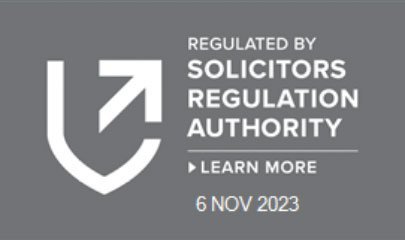1. Speak to your spouse about how you see your future
It can be helpful to arrange a time without distractions to explain how you are feeling about the marriage and discuss how you each see your futures. If you understand each other’s perspectives and can work together constructively, it will be easier to reach a fair outcome for both of you. This is likely to result in your divorce process running more smoothly and minimise your legal fees.
2. Remember you no longer need a ‘grounds for divorce’ to initiate proceedings
Family law in England and Wales traditionally required one spouse to divorce the other, usually on the grounds that their actions caused the relationship to fail, which fueled confrontation. The law changed in April 2022 so this is no longer necessary. If you wish to end your marriage you can do so without the need to publicly apportion blame.
3. Talk about future living, financial, child and pet care arrangements
The most effective arrangements involve compromise on both sides. With this in mind, many separating couples find it easier to have conversations about interim arrangements with a counsellor or mediator.
4. Tell your family and children
If you have children, they may benefit from extra support. All children react to their parents’ separation differently. If your children are still in education, we recommend that you inform their school or nursery and consider independent counselling to help them adjust to their new life.
5. Tell friends and work colleagues
Even the most amicable divorce can be stressful so it will help you to have support from friends and colleagues.
Whatever your situation, you are not alone. There are support networks such as Gingerbread, @onlymums and @onlydads which provide forums, information and advice for parents who are separating (or already separated).
6. Pull together financial information
As part of the divorce process you will need to exchange information about assets, liabilities, income streams and pensions so that everyone is clear what is in the family pot to be divided.
7. Decide on solicitors or mediators to represent your interests
A conversation with a law firm will help you decide whether to have representation, and from whom. You can contact Resolution to find a solicitor who advocates non-confrontational divorce.
8. Issue the divorce petition
Your divorce does not officially start until the divorce petition is issued. It is now possible to issue a joint divorce petition, or you may prefer for this to be prepared by one spouse and served on the other. You can discuss and agree who will initiate the process and when.
9. Agree your financial and any care arrangements
You will need to make more permanent arrangements regarding children. These can be agreed between you, with the help of a mediator, collaboratively with solicitors, or with the help of the court via a Child Arrangement Order.
Separate arrangements will need to be agreed regarding the division of the family finances and any ongoing spousal support. The objective will be for the assets to be divided fairly between you and for each spouse to become independent after a period-of-time.
10. Get a Conditional Divorce Order
A Conditional Divorce Order is a document stating that the court does not see any reason why you cannot get divorced and establishing the day the marriage will end.
11. Get a Final Order
It is over. The Final Order officially brings a marriage to an end in England and Wales.
12. Move forward and make new traditions
Remember to update your status by informing insurance companies, schools, employers and your GP. If you have one, you should also consider updating your Will.
Legal Advice
All of the solicitors at Allard Bailey Family Law are committed to a non-confrontational and constructive approach to family law. If you would like to discuss your divorce, separation or child arrangements, please contact Louise Allard or Sabrina Bailey. You can call 020 7993 2936 to arrange a no-obligation consultation.
If you are considering a divorce but are not yet ready to speak to a solicitor, you may wish to use our free family law portal to receive a Free Confidential Report outlining your position.
**Last updated December 2022.**
































































